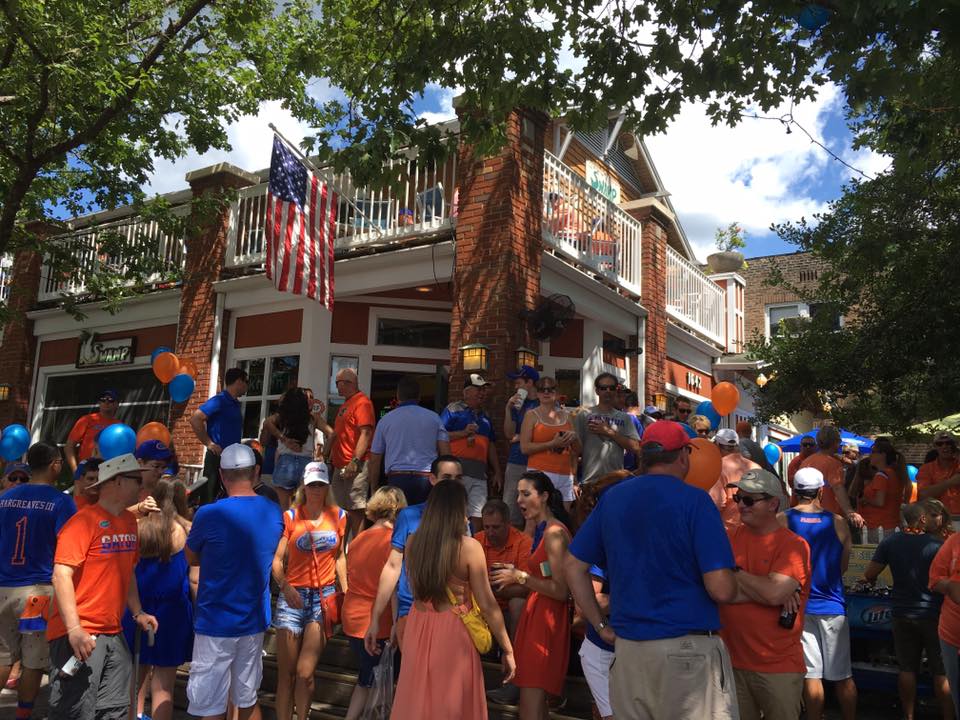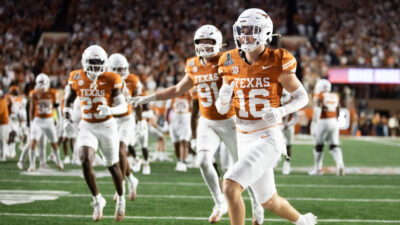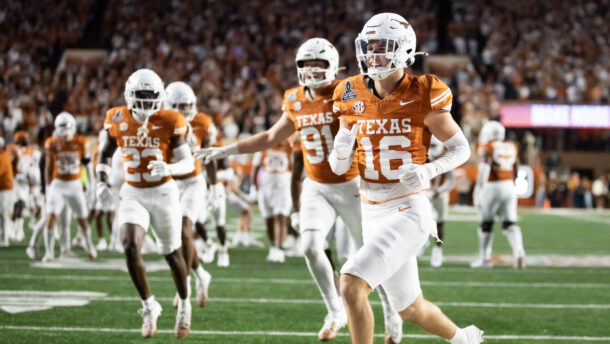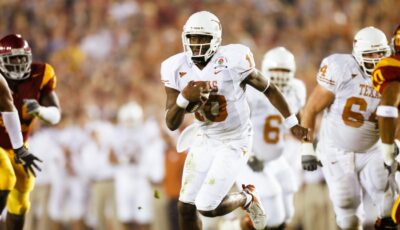
Will local SEC restaurants try to capitalize on new NIL rules? Business owners weigh in
Close your eyes for a second.
The year is 2009. Tim Tebow just announced that he’s coming back to Florida for his senior season. Every publication in America wants a piece of the larger-than-life Florida quarterback. He has media opportunities galore.
But in this world, Tebow is also allowed to profit off his name, image and likeness. Naturally, Tebow has his pick of the litter, so he elects to do some local TV commercials. One of them is for “The Swamp Restaurant” in Gainesville. The commercial writes itself:
Tebow, sitting at a table in the restaurant, says “every Saturday in the fall, there’s no better place to be than ‘The Swamp.’ But when I’m not at that Swamp, I’m at my other favorite Swamp.”
**Cuts to b-roll of Tebow demolishing some chicken wings with shots of the indoor and outdoor seating**
Tebow then says, “The Swamp Restaurant is a Gainesville institution that’s been serving up the best game day food and drinks since 1994. Whether you want to watch the game on Saturday or you want to bring your family during graduation week, ‘The Swamp Restaurant’ has you covered. In fact, it’s so good that sometimes I lose track of time.”
**Cuts to shot of the TV in ‘The Swamp Restaurant’ that shows a bunch of confused players with the words “Where’s Tim Tebow?” running across the bottom of the screen**
Tebow then says, “Whoops! Looks like I lost track of time again!”
**Cuts to shot of Tebow sprinting out of the restaurant surrounded by fans in blue and orange (just Florida colors and not Florida gear because logos are prohibited) and plowing through a fan wearing a purple and gold jersey**
End scene.
That world didn’t exist for Tebow when he was at Florida, but if it did?
“Businesses around town would’ve lined up for him,” The Swamp Restaurant owner Ryan Prodesky told SDS.
For Prodesky and other local businesses in college towns, this world will exist starting in the 2021-22 school year. Wednesday’s announcement from the NCAA that student-athletes will be able to profit off their name, image and likeness was a landmark development in college sports. New opportunities will be available.
For local businesses in college towns, that’s also a game-changer. Under the new guidelines, they’ll be allowed to advertise for their businesses with players from the big-revenue sports.
“It’s something that we’ve considered,” Prodesky said. “Things are different now with social media. A lot of the players will tweet or Instagram post about us as it is just because they’re in here and it’s part of their normal daily life.
“It would add a whole different dynamic. We’d have to really change up our whole business model to put that in. We’re in Gainesville, so there’s not a lot of celebrity spokespeople to use, but it’s something we would obviously consider. I think it’s something that we’d really have to sit down with our marketing people and decide how it fits into our mix.”
Matt Jones, who created and hosts the ever-popular Kentucky Sports Radio, owns KSBar and Grille in Lexington. What are his thoughts on using Kentucky basketball or football players as pitchmen for the restaurant?
“It would be very attractive,” Jones said in a Twitter message to SDS. “I think you would see many places seek to use these athletes, our restaurant included.”
Because what business owner in Lexington wouldn’t want Benny Snell or John Wall marketing their brands?
A mutually-beneficial partnership will certainly take some navigating. The timing of this announcement, however, came at a strange time because of COVID-19 restrictions in restaurants.
Former Auburn coach Gene Chizik owns multiple “Louie’s Chicken Fingers” restaurants in Auburn. Like the rest of America, Chizik’s priority has been COVID-19 related, and in the 24 hours following the announcement, he hadn’t dug into the NCAA’s statement yet. When asked about the idea of using Auburn players as potential pitchmen, he said he’d have to look into it, “but that’s not a bad idea, though!”
Chizik’s right. It’s not a bad idea, as long as it’s done the right way.
Figuring out what that is in terms of “market value” to have college athletes as pseudo-celebrity spokespeople remains to be seen. A Yahoo Sports article outlined that Trevor Lawrence’s Instagram posts would be valued at $16,000 apiece with his following of nearly 500,000. Would that mean someone like Derek Stingley, who has an Instagram following of 109,000, would earn around $3,000 per post? At this point, nobody knows. It’s uncharted territory for all parties.
“It’s something that’s never been available. I think somebody will figure out a formula to get the most out of it,” Prodesky said. “It’s something that’s so new and so different that it’ll take a little bit of time to adjust and see where they fall.”
Prodesky suggested that formula could be primarily utilizing social media. Instead of the high overhead production costs of shooting a TV commercial or a newspaper ad, college athletes could become the next social media influencers. It would be similar to what you see from NFL Draft prospects:
View this post on Instagram
For local restaurants like The Swamp, those ads could be more geared toward a specific campaign than brand building or brand recognition.
The players who will benefit will be the ones who move the needle. Obviously the bigger their social media following, the better. As Prodesky said, fans are accustomed to seeing Florida players around campus or in his restaurant. Not everyone turns heads like Tebow, though.
The NCAA’s announcement stated that a policy with official NIL rules will but put in place next January to take into effect for the 2021-22 school year. That means for local restaurant owners like Prodesky, Jones and Chizik, they still have plenty of time to map out some preliminary plans.
They’ll likely also have to work within the guidelines that’ll be in place for specific programs. It wouldn’t be surprising if coaches limited third-party revenue opportunities to January-July. That window could be even smaller depending on the program.
What we do know is that for the first time ever, local businesses in college towns will be able to financially benefit from athletes in a direct way. During a time when the entire college athletics landscape is up in the air because of COVID-19, Wednesday’s announcement was at least one piece of good news for local restaurants.
Soon enough, we’ll be living in a world in which the next Tebow can legally make a buck telling us about his favorite chicken wing spot.
We won’t even have to close our eyes to imagine it.
Connor O'Gara is the senior national columnist for Saturday Down South. He's a member of the Football Writers Association of America. After spending his entire life living in B1G country, he moved to the South in 2015.







